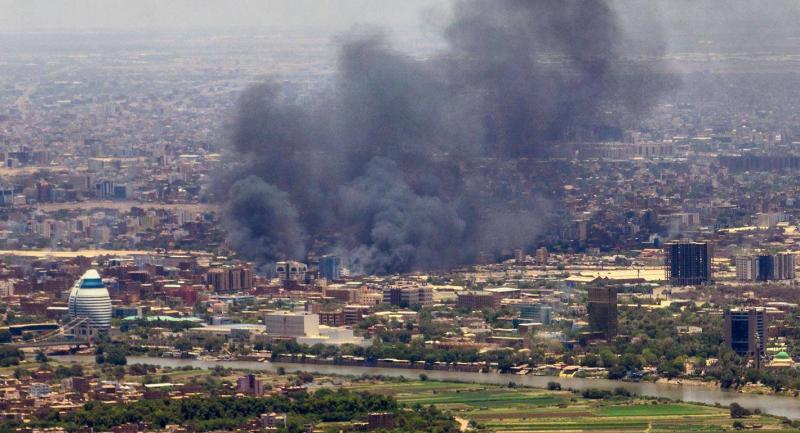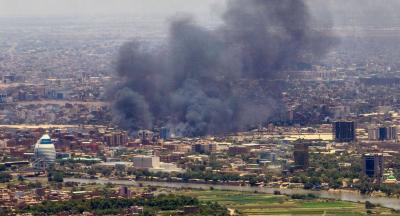Violent clashes and artillery shelling erupted across Sudan's capital, Khartoum, today, Sunday. Residents reported air strikes shortly after a 24-hour ceasefire came to an end, which had provided a brief respite in the ongoing fighting between the Sudanese army and the Rapid Support Forces for eight weeks. Witnesses stated that the fighting that broke out today between the two sides was among the fiercest battles in weeks, involving ground clashes in the densely populated Al-Haj Yousif neighborhood in Bahri city, which, alongside Khartoum and Omdurman, forms the capital triangle at the confluence of the Nile River.
After the truce ended, witnesses reported that clashes and artillery fire resumed in northern Omdurman. They also indicated clashes occurred in southern and central Khartoum, as well as in Shambat on the Nile River in Bahri city, extending to the strategic Halfaya Bridge leading to Omdurman. Musab Saleh, a 38-year-old resident of southern Khartoum, stated, "The truce allowed us to rest a little, but war and fear return today." A local activist who visited two sites that were struck by artillery fire in southern Khartoum noted that at least 11 civilians were killed there. Another activist from that area reported that fighting in eastern Khartoum claimed the lives of six civilians.
The fighting has concentrated in the capital, most of which has turned into a battleground suffering from looting and clashes. Disturbances also erupted elsewhere, such as in the Darfur region in the west of the country, which has been experiencing conflict that peaked nearly 20 years ago. Residents and activists reported further deterioration in the past few days in the city of Geneina, near the border with Chad, with new waves of attacks launched by Arab tribes connected to the Rapid Support Forces. Among the dead were several human rights activists, lawyers, and doctors, according to the Darfur Bar Association, which monitors the conflict in the region. The city has experienced extensive communication outages for several weeks.
**Looting Everywhere**
Another affected city is Al-Obeid, the capital of North Kordofan state, southwest of Khartoum, located on a major road leading to Darfur. Residents say it is effectively under siege due to the conflict, with food and medicine supplies cut off. The Kordofan region is an important agricultural area and a source of livestock, oilseeds, and gum arabic. The Rapid Support Forces claim they are working to combat looting and deny responsibility for the violence in Darfur.
Approximately 400,000 displaced individuals have crossed into neighboring countries, with nearly half heading north to Egypt. For its part, Egypt tightened entry procedures into its territory yesterday, Saturday, issuing a new decree requiring all Sudanese males aged 16 to 50 to obtain a visa. Even before the rule change, thousands of Sudanese faced long wait times at the border while trying to obtain visas. Saudi Arabia and the United States led talks in the city of Jeddah to negotiate a ceasefire that began yesterday morning for 24 hours. A previous 12-day ceasefire agreement reached in Jeddah had faced repeated violations.




